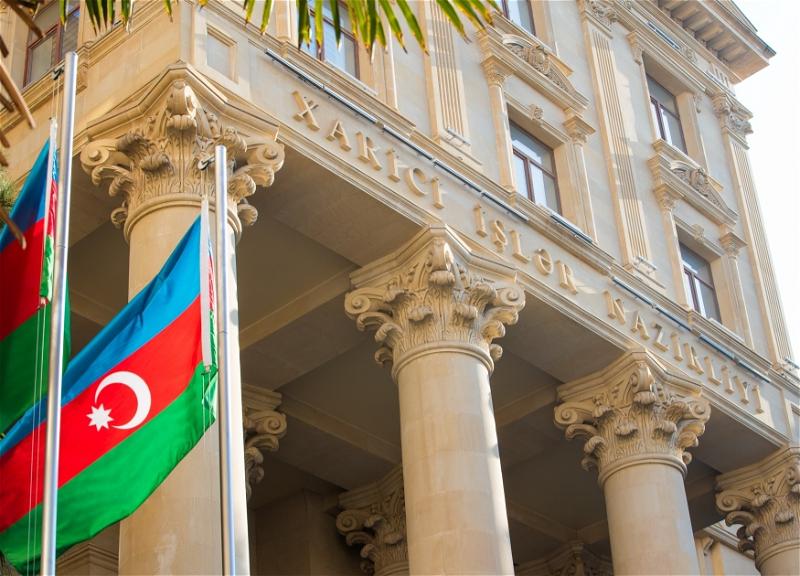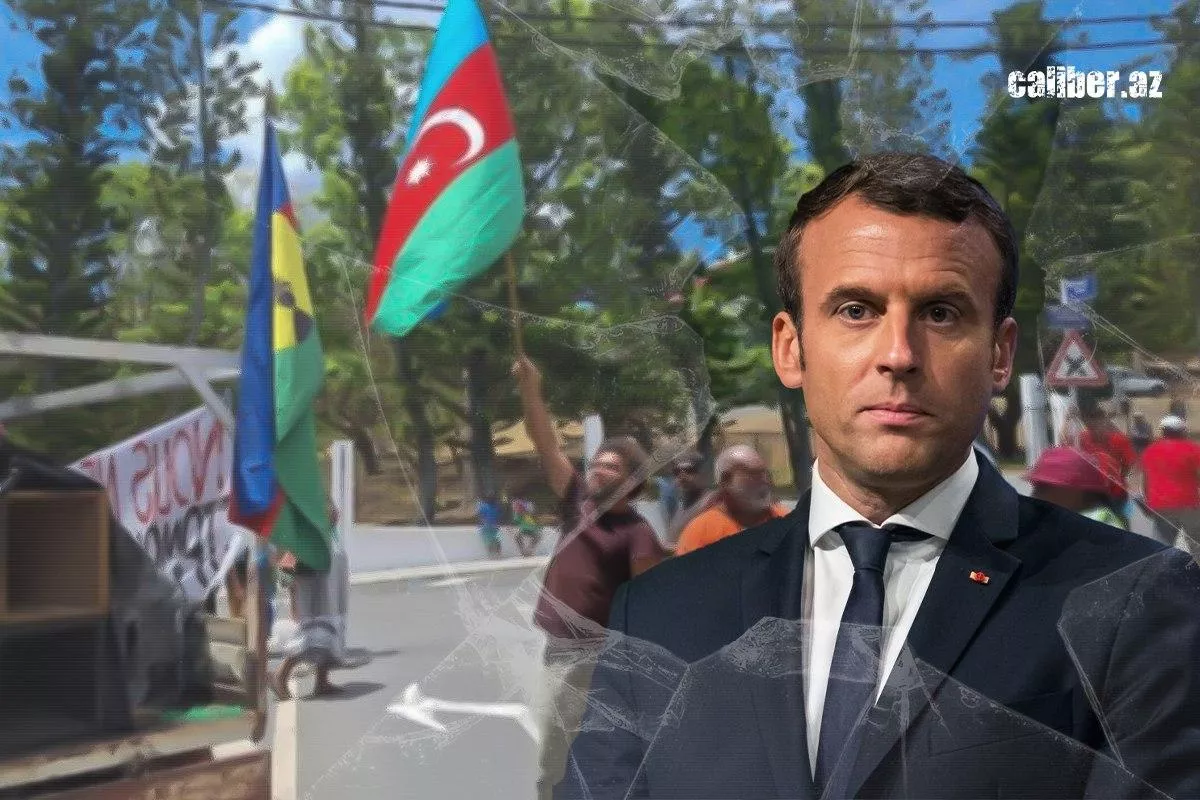What drives France’s fear of Azerbaijan? Macron’s hysteria and Baku’s firmness
As 2025 unfolds, it seems French President Emmanuel Macron is stuck in the past, with the same narratives, falsehoods, and justifications from the previous year lingering on. Unsurprisingly, one of his primary focuses remains the anti-Azerbaijani rhetoric. Given his refusal to reconsider his position, this hardly comes as a surprise.
At the customary meeting with French ambassadors and diplomats, Macron once again rode the pro-Armenian wave, but in a rather peculiar way. He asserted that Moscow had "betrayed" its "allied relationship" with Armenia and voiced support for Baku’s "activities." He then quickly shifted to another round of criticisms, lamenting Azerbaijan’s supposed “attacks on the Champs-Élysées” and its "unacceptable interference in the affairs of numerous overseas territories, particularly New Caledonia." According to Macron, Baku allegedly “does not understand our defence of international law and Armenia, believing that this way it is resolving the issue.”
The Azerbaijani Ministry of Foreign Affairs responded swiftly, as always, to the latest round of French insinuations, pointing out that Paris, which so often prides itself on being a champion of international law, has never once bothered to criticize the “gross violation of the norms and principles of international law in relation to Azerbaijan, the ethnic cleansing policy, the mass killings, and crimes against humanity carried out by Armenia.” The Azerbaijani Foreign Ministry also condemned France's stance, which undermines the sovereignty of Azerbaijan and prepares Armenia for revanchism by arming it. Regarding Macron’s false claims about the French “overseas territories,” Baku made it clear to official Paris not to shift the blame for its own failures in these regions onto Azerbaijan.

In light of the ongoing discussion, two key questions arise. Representatives from the French embassy in Azerbaijan have likely informed Macron about the widespread debate, not only within Azerbaijan but beyond, surrounding the shocking statements made by Armenia's first president, Levon Ter-Petrosyan. He openly acknowledged the legitimacy of the ethnic cleansing carried out against the Azerbaijani people, both in the territory of Western Azerbaijan and in Karabakh and East Zangezur, actions executed by Armenian war criminals. This brings us to the first question: Does Macron believe these actions by Armenia are under international law?
The second question takes a slightly different angle. Can the president of France, who claims to uphold the motto "Liberty, Equality, Fraternity," truly believe that it is acceptable to pursue a neocolonial policy in the 21st century towards certain states, officially designating them as "his overseas territories"? It seems he does. But if this is the case, on what grounds does he criticize Baku, which has consistently championed the rights of oppressed and marginalized peoples?

Moreover, Macron, perhaps unwittingly, demonstrates to the world the strength of today's Azerbaijan. The issue here is that the anti-colonial stance adopted by Baku (even though Macron frames it as "interference in France's overseas territories") has been highlighted by the French president alongside other significant topics he raised, such as the negotiation process between Ukraine and Russia, relations between the European continent and the future administration of Donald Trump, the strengthening of the European Union's defense industry, the importance of a "clear-sighted" view on recent developments in Syria, and a detailed examination of the situation in and around Iran, among others.
In other words, by presenting to the international community his perspective from the Élysée Palace on the key global issues, Macron has included Azerbaijan’s fight against France’s colonial policies in his list. As a result, Baku's stance on this issue has been thrust into the spotlight of world powers. However, this perspective will likely attract far greater interest from those countries oppressed by France. Yes, these nations have long felt the support of the Azerbaijani people—starting with Azerbaijan’s leadership of the Non-Aligned Movement and the steps taken from the Caspian shores during the pandemic. However, now that Azerbaijan’s fight against colonialism is positioned among the most important geopolitical topics, countries whose freedoms have been suppressed by France will be even more determined to fight for their violated rights. This will be particularly true in light of the successful activities of the Baku Initiative Group (BIG).

Therefore, one can only smile condescendingly at the enthusiasm with which Armenian media quote Macron’s statements in the context of the South Caucasus. It is truly remarkable how much unwarranted reverence there is for this figure in Armenia. It is astonishing. Do they really not see the weakness and short-sightedness of the French president on the Armenian political scene? Is there no awareness in Yerevan that Paris has suffered a geopolitical defeat not only in relation to Africa but also in the Russian-Ukrainian context and the Middle East?
Perhaps the Armenian political establishment was thrilled by Macron’s mention of a "unified country from Saint-Denis to Tahiti" in his New Year’s address to the French people. But does Macron himself believe in this unity, especially considering that he openly expressed concerns about Baku’s firm stance against Paris’s neocolonial ambitions?
In any case, they can continue to admire him. Meanwhile, Azerbaijan continues on its path of strengthening its global reputation.








